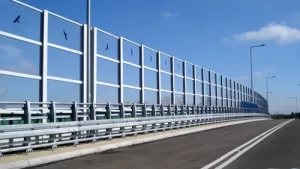
The trade and global logistics sectors depend much on truck movement. For transporting goods across cities, states, and nations, it is considered one of the most dependable and effective ways. Trucks are an important part of the last part of the supply chain; they connect ports, warehouses, manufacturers, and customers. The growth of the trucking sector has helped companies to simplify their distribution systems and increase their scope. Companies like Woodlands transport services help the trucking sector keep changing and raise dependability and delivery speed for both domestic and international trade.
Truck Transportation in World Trade
Global trade is mostly dependent on truck transportation since it lets products be swiftly and effectively passed between several supply chains. From retail stores to manufacturing facilities, trucks guarantee that goods arrive at their intended locations, playing a major role in both local and worldwide trade. Trucks are flexible tools in the worldwide supply chain since they can carry a great spectrum of goods, including food, electronics, and raw materials.
- Effective goods transportation, both short- and long-distance
- Basic for linking ports, trains, and airports with distribution hubs
- Adaptable for many kinds of cargo, including goods sensitive to temperature
 Economic Worth of Truck Transportation
Economic Worth of Truck Transportation
The global economy is much influenced by the sector of truck transportation. Along with helping goods to move, it generates millions of jobs all around. From drivers and warehouse workers to logistics managers, the trucking business presents a broad range of career paths. The sector also supports auxiliary businesses, including insurance companies, fuel suppliers, and maintenance providers.
- Generates millions of transportation and logistics jobs worldwide
- Supports secondary businesses, including fuel supply and maintenance.
- Boosts local businesses by helping them to increase their scope.
Truck Transportation’s Effects on the Environment
Truck travel presents environmental issues even if it has many advantages. Particularly in areas with significant traffic, truck emissions help to contribute to air pollution and climate change. By means of more fuel-efficient vehicles, alternative fuels, and technological developments, efforts are under progress to lower the carbon footprint of trucks. For long-distance trucking, Woodlands transport services is developing more environmentally friendly options to lower impact.
Technological Developments in Truck Travel
Many technological developments in the trucking industry have improved sustainability, efficiency, and safety recently. From autonomous trucks to GPS tracking systems, technology is transforming global goods movement. These developments are helping businesses lower costs, improve client happiness, and change delivery times. Real-time data and fleet management systems let trucking companies maximize routes, guarantee timely delivery, and increase fuel economy.






